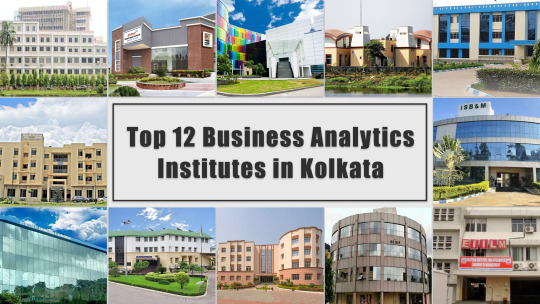#business analytics in india
Explore tagged Tumblr posts
Text

Discover Kolkata's Top Business Analytics Institutes. Boost your career with data analysis and market research skills. Click to read more.
#business analytics course with placement#business analytics in india#business analytics course#business analytics#business analytics degree in india#business analytics colleges in kolkata#business analytics institutes#top business analytics colleges in kolkata#top business analytics institutes in kolkata#globsynbusinessschool#globsyn business school#globsyn#gbs#gbs kolkata#gbskolkata#pgdm in business analytics#pgdm business analytics
3 notes
·
View notes
Text

#Business Analytics#Colleges in India#Data Analytics#Top Colleges in India#Business Analytics Courses#Management#Colleges for Business Analytics#Big Data Analytics#Management Programs in India#Data Visualization
2 notes
·
View notes
Text
Your Premier Choice for Manufacturing ERP Solutions in Vadodara, Gujarat | shantitechnology
Discover the power of streamlined operations with STERP (ShantiTechnology), the leading provider of cutting-edge ERP software solutions for manufacturing companies in Gujarat. Unlock efficiency, enhance productivity, and maximize profitability with our comprehensive suite of ERP tools. Join a league of industry leaders who trust STERP to transform their businesses in Vadodara and beyond. From seamless inventory management to real-time analytics, STERP empowers you to stay ahead in today's competitive landscape. Experience unparalleled support and customization options that cater to your unique business needs.
Unlock your company's full potential with STERP today.
#Manufacturing ERP software in Gujarat#ERP software companies in Vadodara#ERP software providers in Vadodara#ERP for manufacturing company in Gujarat#ERP software in Vadodara#ERP software#ERP system#cloud ERP#ERP solutions#ERP software for engineering#business process#management software#business and management#business analytics#business analyst#ERP India#Business Solutions#SAP Business One#Supply Chain Management#Go-To-Market
5 notes
·
View notes
Text
Anveshan - bba event management colleges in india
2 days In-house Management event for 1st Year students to motivate and to build their confidence. Focusing on communication, financial, crisis mgmt, marketing..
#bba colleges in belgaum#top bba colleges in belgaum#bba colleges in karnataka#bba in event management#bba event management course#bba event management colleges in india#bba in digital marketing#top bba colleges in karnataka#best bba colleges in karnataka#bba in event management colleges#bba in digital marketing colleges#colleges for bba in event management#bba in event management colleges in india#bba in logistics and supply chain management#bba in financial market#bba in business analytics#bba in supply chain management#bba financial management#kle bba college belgaum#kle cbalc belgaum#best bba colleges in belgaum
2 notes
·
View notes
Text

#top business schools in hyderabad#top mba colleges in india#best colleges for mba#mba in finance#top MBA colleges in India#MBA For Experienced Professionals#MBA Business Analytics#MBA Financial Services#top universities in Hyderabad
0 notes
Text
Masters in Business Analytics India | MBA in Business Analytics India
Pursuing a Masters in Business Analytics in India is a smart choice for individuals looking to equip themselves with the necessary skills to analyze and interpret complex data, driving strategic decisions in businesses. Business analytics has gained immense popularity in recent years, and organizations are now seeking professionals who can extract meaningful insights from data to stay competitive.
Among the top institutions offering this program in India is the Symbiosis Institute of Business Management Bengaluru (SIBM Bengaluru). Known for its academic rigor and innovative teaching methods, SIBM Bengaluru provides an ideal environment for students to master business analytics. The program at SIBM Bengaluru is designed to bridge the gap between business strategy and data science, offering a comprehensive curriculum that includes statistical modeling, data visualization, machine learning, and decision analytics.
The faculty at SIBM Bengaluru consists of experts who bring a wealth of industry experience to the classroom. The institution’s strong industry connections also provide students with numerous opportunities for internships and live projects, ensuring a practical learning experience. Graduates of the Masters in Business Analytics India program from SIBM Bengaluru are well-equipped to pursue rewarding careers in data analysis, consulting, and technology-driven roles across various sectors. Kindly visit https://www.sibmbengaluru.edu.in/mba-business-analytics/ to know more.
0 notes
Text
Driving Business Transformation with Data Science: Case Studies and Insights

#Data Science Colleges in India#Business Growth#Data Science Management#Data Science Course#Industry Case Studies#Data Analytics#Artificial Intelligence#Emerging Technologies#Big Data
1 note
·
View note
Text
Why Choose the Best Colleges for MBA Finance in India?
India has emerged as a hub for management education, offering some of the finest colleges and programs for aspiring business leaders. Among the array of specializations, MBA in Finance is one of the most sought-after courses due to its scope in banking, investment, and corporate finance. For those considering this path, selecting the right college is a crucial step. In this article, we’ll explore why the best colleges for MBA finance in India stand out and how they can shape your future.
Top MBA Institutes in Hyderabad: A Prime Choice
Hyderabad, known as India’s "City of Pearls," has gained prominence as an educational hotspot, housing some of the Top MBA institutes in Hyderabad. These institutes are known for their cutting-edge infrastructure, experienced faculty, and industry-aligned curriculum.
Institutes like the Indian School of Business (ISB) and other reputed business schools in Hyderabad offer tailored courses for MBA Finance, ensuring students acquire both theoretical and practical knowledge. Additionally, their strong industry connections help students secure internships and placements with leading financial organizations.
The Role of Business Analytics in Finance
With the advent of technology, financial management now relies heavily on data-driven decision-making. Many colleges in India provide integrated courses that combine Business analytics admission in India with traditional MBA Finance programs.
Business analytics enables finance professionals to interpret large datasets, analyze trends, and make informed investment decisions. This skill is essential for students who wish to thrive in today's competitive job market. By opting for programs that include business analytics, students can diversify their skill sets and expand their career opportunities.
Emerging Trends: PGDM in Fintech
India's fintech sector is growing at an exponential rate, making it an exciting area for students pursuing finance education. Several PGDM fintech colleges in India offer specialized programs that combine financial principles with modern technology such as blockchain, cryptocurrency, and digital payments.
By enrolling in these programs, students can gain expertise in areas like financial technology, innovation, and regulatory compliance, which are critical for modern financial ecosystems. These courses also provide hands-on experience through real-world projects and internships with leading fintech companies.
Key Benefits of Studying MBA Finance in India
Global Recognition: The top MBA institutes in Hyderabad and across India are globally recognized, providing students with a competitive edge in international markets.
Strong Alumni Network: The best colleges boast an extensive alumni network, helping students with mentorship, guidance, and career placements.
Practical Exposure: Programs often include internships, case studies, and live projects to ensure students are industry-ready.
Diverse Career Options: Graduates from MBA Finance programs can explore roles such as financial analysts, investment bankers, portfolio managers, and more.
Conclusion
Choosing the best colleges for MBA Finance in India is a step toward a promising and fulfilling career. Institutions in Hyderabad and other parts of India are well-equipped to meet the demands of modern finance through specialized programs like business analytics admission in India and PGDM fintech colleges in India. These courses not only offer technical and managerial skills but also ensure global career opportunities.
If you're aiming for a dynamic and rewarding career in finance, now is the time to explore the options and secure your admission to one of India’s premier MBA institutes.
#Top MBA institutes in Hyderabad#Business analytics admission in India#PGDM fintech colleges in India
0 notes
Text






🚛📱 Revolutionize your logistics business with cutting-edge mobile app solutions! From real-time tracking to AI-powered analytics, discover how technology can transform your operations, boost efficiency, and delight your customers. 🌟✨
📦 Why wait? Optimize your logistics today with Us. 🚛📦✨
Visit now.
#LogisticsApp#MobileAppDevelopment#TechInnovation#LogisticsSolutions#SSTechSystem#RealTimeTracking#AIinLogistics#SupplyChainManagement#BusinessGrowth#TechForBusiness#LogisticsIndustry#AI#analytics#technology#appsolutions#business#india#usa#australia#B2B#sstech system#flutter#webdevelopment#appdevelopment#appsdevelopment
1 note
·
View note
Text
Emerging Trends in Business Analytics and Their Impact on Online MBA Programs
Business analytics has emerged as a critical process for companies. The demand for skilled professionals in this field has increased. Online PG courses are changing to keep pace with these demands. They are incorporating the latest trends in business analytics into their curricula.
Current Trends in Business Analytics
Several key trends are shaping the business analytics landscape. Augmented analytics is at the forefront with AI and NLP to enhance data analysis. The technology enables users to derive insights more intuitively and efficiently. Real-time analytics is also a must for businesses.
Emphasis on data governance and privacy is also rising as organisations navigate ethical considerations when using data. Lastly, the integration of AI tools revolutionises predictive analytics and automation to enable business houses to foresee trends and work on streamlining their operations.
The Role of Online MBA Programs
Online MBAs in Business Analytics in India also respond to trends by gearing more students for work in specific ways. More programs add course offerings for classes on machine learning, data visualisation, and business intelligence, guaranteeing students enter the environment technology has become such a driver within. As these programs point towards industry, this is followed through with what today's business environments demand for graduate students: business analysts and data analysts.
Advantages of an Online MBA in Business Analytics
The benefits of an online MBA are primarily flexibility and accessibility for working professionals. These programs also provided networking opportunities online and through collaborative projects that would not have been possible otherwise. Graduates could expect enhanced career prospects since organisations seek to hire individuals who can use data when making strategic decisions.
Challenges for Online MBA Programs
Despite these advancements, online PG courses face challenges keeping pace with technology. It is crucial to ensure that curricula remain relevant despite rapid technological changes. Furthermore, maintaining high education standards and practical experience in an online format presents ongoing hurdles.
Future Outlook
Going forward, analytics will be revolutionised with new technologies such as AR and VR. Business intelligence tools for self-service and solutions based in the cloud will change how an online MBA in Business Analytics in India prepares students for the future.
In conclusion, the impact of emerging trends in business analytics on online MBA programs is profound. Prospective students considering these programs must consider how these developments can shape their careers in this dynamic field as such programs evolve to meet industry needs.
0 notes
Text

#business analytics#pgdm in business analytics#business analytics in india#career in business analytics#career in pgdm business analytics#pgdm business analytics career#business analytics career#future of business analytics#future of business analytics in india#Globsyn Business School#GlobsynBusinessSchool#GBS#Globsyn#GBS Kolkata#gbskolkata
2 notes
·
View notes
Text
youtube
🎉 You can learn how to analyze your competitors and take your website to the next level. 👉 Join our Digital Marketing Course at NIDM today! ☎️Call us at +91 9030111741 🌐https://nidmdigitalmarketing.com #thedynamicmarketer #hyderabad #NIDM #seo #competitor #analytics #course #marketing #program #sales #entrepreneurship #startup #ecommerce #india #skills #DigitalMarketing #company #growth #MasterProgram #EDMP #training #india #startupmarketing #business #smallbusiness #india #women #ecommerce #startupindia #sales #smallbusiness
#thedynamicmarketer#hyderabad#NIDM#seo#competitor#analytics#course#marketing#program#sales#entrepreneurship#startup#ecommerce#india#skills#DigitalMarketing#company#growth#MasterProgram#EDMP#training#startupmarketing#business#smallbusiness#women#startupindia#Youtube
0 notes
Text
Meet the Trusted ERP Software Provider for Manufacturers | STERP | shantitechnology
Introducing Shantitechnology (STERP), a visionary leader among ERP software companies in India. As one of the top ERP software providers in the country, they have revolutionized the business landscape with their cutting-edge solutions. Specializing in ERP for manufacturing companies in India, Shantitechnology offers a comprehensive suite of tools tailored to streamline operations, enhance productivity, and boost profitability. Their expertise in ERP software in India is unparalleled, providing seamless integration, real-time data analytics, and advanced reporting capabilities.
With a track record of empowering businesses across various sectors, Shantitechnology is the go-to ERP software company in India for those seeking sustainable growth and operational excellence. Experience the future of ERP solutions with Shantitechnology (STERP) today.

#ERP software Companies in India#ERP software providers in India#ERP for manufacturing company in India#ERP software in India#ERP software company in India#technology#marketing#ERP software#cloud ERP#ERP solutions#manufacturer#business process#management software#business and management#business analytics#business#STERP#shantitechnology
8 notes
·
View notes
Text

#top business schools in hyderabad#top mba colleges in india#best colleges for mba#mba in finance#top MBA colleges in India#MBA For Experienced Professionals#MBA Business Analytics#MBA Financial Services#top universities in Hyderabad
0 notes
Text
Masters in Business Analytics India | MBA in Business Analytics India
Pursuing a Masters in Business Analytics in India is a smart choice for individuals looking to equip themselves with the necessary skills to analyze and interpret complex data, driving strategic decisions in businesses. Business analytics has gained immense popularity in recent years, and organizations are now seeking professionals who can extract meaningful insights from data to stay competitive.
Among the top institutions offering this program in India is the Symbiosis Institute of Business Management Bengaluru (SIBM Bengaluru). Known for its academic rigor and innovative teaching methods, SIBM Bengaluru provides an ideal environment for students to master business analytics. The program at SIBM Bengaluru is designed to bridge the gap between business strategy and data science, offering a comprehensive curriculum that includes statistical modeling, data visualization, machine learning, and decision analytics.
The faculty at SIBM Bengaluru consists of experts who bring a wealth of industry experience to the classroom. The institution’s strong industry connections also provide students with numerous opportunities for internships and live projects, ensuring a practical learning experience. Graduates of the Masters in Business Analytics India program from SIBM Bengaluru are well-equipped to pursue rewarding careers in data analysis, consulting, and technology-driven roles across various sectors. Kindly visit https://www.sibmbengaluru.edu.in/mba-business-analytics/ to know more.
0 notes
Text
Strategic IT Management for PGDM Students: Bridging Business and Technology

#Information Technology Management#PGDM Specialization#Emerging Technologies#Business Technology#Cybersecurity Management#Risk Management#Colleges for IT Management#Colleges in India#Data Analytics#IT Strategy for Business
1 note
·
View note